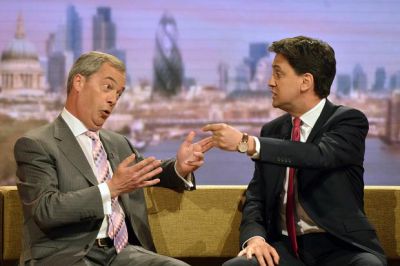
 Election Tensions Rise Over Debates
Election Tensions Rise Over Debates
Other | Wednesday 14th January 2015 | Matt
Concern is growing around the debates leading up to this May's general election. Following the BBC's decision to include UKIP in the upcoming discussions, David Cameron has refused to participate unless the Green party is also included. Following this, Ed Miliband and Nick Clegg have urged the BBC to let the debates continue without Cameron or the Green party, suggesting an empty chair should replace the Prime Minister in the televised broadcast if he refuses to back down.
Although not a large party, the Greens have seen something of a resurgence as of late. Following the decline in Liberal Democrat support, the Greens have done exceptionally well, and are rivalling UKIP in the opinion polls. The BBC maintains that while popular, the Greens have not demonstrated the same level of popularity as UKIP, and as such are not a true contender in the upcoming election. If the BBC refuses to reverse its policy, the result could be very beneficial for Labour and the Lib Dems. Just as UKIP provide a strong right wing voice that will win the votes of radical Conservatives, so the Greens represent a powerful left wing agenda that threatens to undermine traditional Labour and Lib Dem support on questions of the environment and the NHS. This is also the reason David Cameron is being so vocal in his support of the Greens, as he knows that by forcing them to be included, he can balance the negative effect Nigel Farage will have on the Conservative vote around immigration and the economy.
If the debates go ahead without Cameron or the Green party, it is essentially a double win for UKIP, Labour and the Lib Dems. However, given the general public mood that the Greens should be included for reasons of fairness, it seems likely that the BBC will back down. Cameron is right, but he's right for the wrong reasons. The Greens should be included not necessarily because they will have the same negative effect as UKIP on the traditional parties, but because they represent a substantial portion of the population who are fed up with the traditional choice between Labour and the Tories, and realise that our politics must shift to include marginal voices as well as popular ones.
